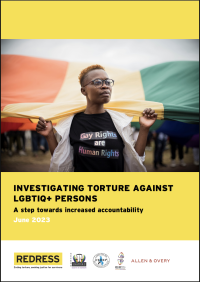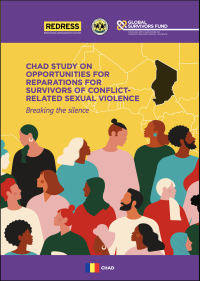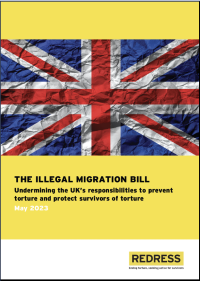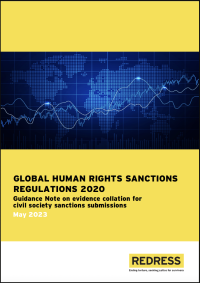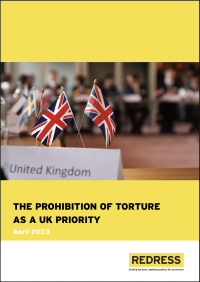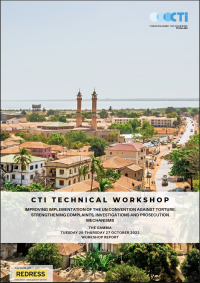Publications
REDRESS’ publications are also available in hard copy format. Please contact us for further information on [email protected].
This briefing sets out the relevant international standards concerning the duty to investigate torture against LGBTIQ+ persons and offers concrete recommendations to strengthen the legal framework and improve the practice of investigations into such discriminatory violence.
This report identifies opportunities and challenges for reparations of survivors of sexual and-gender based violence in Chad. The report shows how victims of CRSV have received no financial compensation or other forms of reparations, such as rehabilitation, despite sexual violence being so systematic under Habré that they were characterised as a crime against humanity by the Extraordinary African Chambers (EAC), an ad hoc court sitting in Senegal, established by Senegal and the African Union.
This briefing paper focuses on the way in which the Illegal Migration Bill, if passed, would result in the UK breaching its obligations under international law against torture, in particular, the UN Convention against Torture (UNCAT) and the International Covenant on Civil and Political Rights, both of which the UK has ratified.
This is a joint NGO Letter to the Core Group and Co-Sponsoring States of the Convention on International Cooperation in the Investigation and Prosecution of the Crime of Genocide, Crimes against Humanity, War Crimes and other International Crimes (“MLA Convention”) in response to version 30/11/2022 of the Draft MLA Convention and in advance of the Diplomatic Conference for the Adoption of the MLA Convention to be held in Ljubljana on 15-26 May 2023.
This guidance note provides best practice guidance for civil society organisations on collating evidence for the purpose of preparing sanctions submissions under the UK’s targeted sanctions regimes.
This briefing paper offers recommendations to the UK government on re-prioritising commitments to prevent and respond to torture within the UK foreign policy.
This is a report of a Technical Workshop on “Improving implementation of the UN Convention against Torture: Strengthening complaints, investigations and prosecution mechanisms”, held on 27-29 October 2022 in Serrekunda, The Gambia. It was led by the Convention against Torture Initiative (CTI) and hosted by the Ministry of Justice and Attorney General’s Chambers of The Gambia, and organised in partnership with REDRESS.
On 5 April 2023 REDRESS made this submission to the UK Parliament’s Joint Human Rights Committee on the Illegal Migration Bill. The contribution focuses on the way in which the Bill, if passed, would result in the UK breaching its obligations under international law against torture, in particular, the UN Convention against Torture and the International Covenant on Civil and Political Rights, both of which the UK has ratified.
